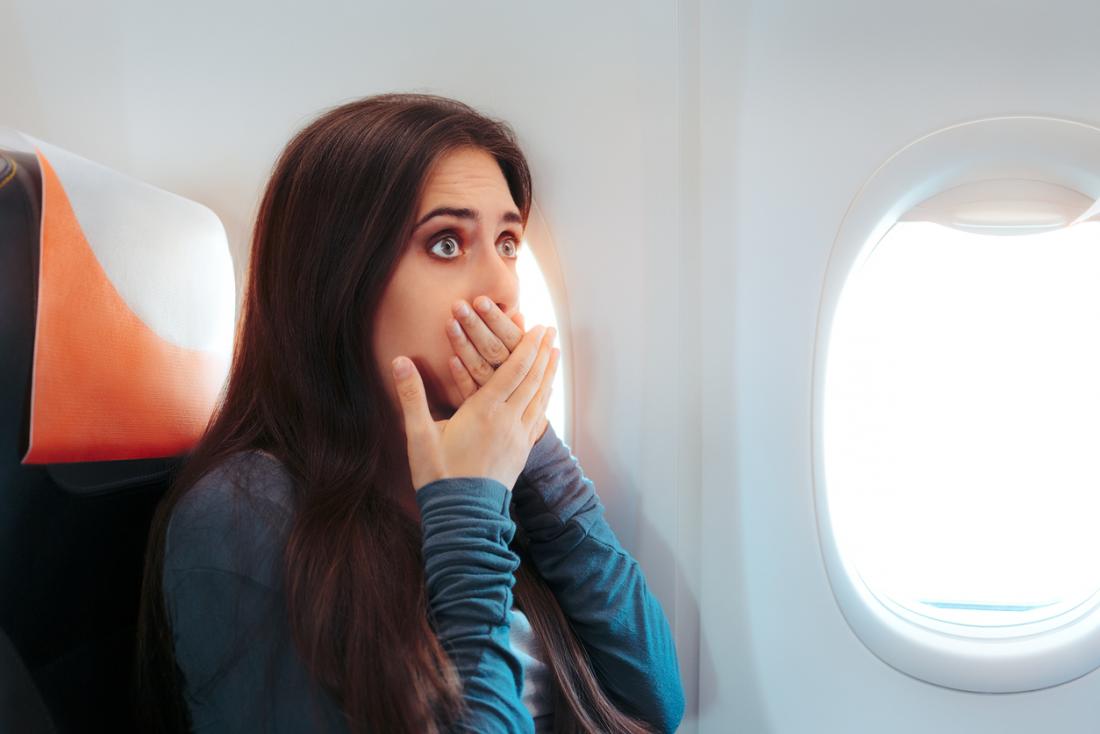Aerophobia (Fear of Flying): Taking the Anxiety Out of Air Travel
Aerophobia, or the fear of flying, is a surprisingly common phobia that can significantly impact a person’s life. While air travel is statistically one of the safest modes of transportation, the experience can trigger intense anxiety and panic for those with aerophobia. This comprehensive guide will delve into the causes, symptoms, and various treatment options available to help individuals overcome their fear and embrace the freedom of flight.
Understanding Aerophobia
Aerophobia is a specific phobia, which is a type of anxiety disorder characterized by an excessive and irrational fear of a particular object or situation. In this case, the fear is centered around flying or air travel. The fear may be triggered by various aspects of flying, such as:
- Takeoff and landing
- Turbulence
- Being in an enclosed space
- Heights
- Loss of control
- Fear of crashing
Symptoms of Aerophobia
The symptoms of aerophobia can vary in intensity from person to person. Some individuals may experience mild anxiety or discomfort, while others may have full-blown panic attacks. Common symptoms include:
- Physical: Rapid heartbeat, shortness of breath, sweating, trembling, nausea, dizziness, chest pain
- Emotional: Intense fear, anxiety, panic, dread, feeling overwhelmed
- Behavioral: Avoiding air travel, excessive worry before a flight, difficulty relaxing during a flight
Causes of Aerophobia
There is no single cause of aerophobia. It can develop due to a combination of factors, including:
- Past negative experiences: A traumatic flight experience, such as encountering severe turbulence or witnessing an accident, can trigger aerophobia.
- Other phobias: People with other phobias, such as claustrophobia (fear of enclosed spaces) or acrophobia (fear of heights), may be more likely to develop aerophobia.
- Anxiety disorders: Individuals with generalized anxiety disorder or panic disorder may be more prone to developing specific phobias like aerophobia.
- Genetics: Some research suggests that there may be a genetic component to phobias.
Overcoming Aerophobia: Treatment Options
Fortunately, aerophobia is treatable, and there are various effective options available:
- Cognitive Behavioral Therapy (CBT): CBT is a type of psychotherapy that helps individuals identify and change negative thought patterns and behaviors that contribute to their fear. It can be highly effective in treating aerophobia.
- Exposure Therapy: This involves gradually exposing the individual to the feared situation (e.g., flying) in a controlled and safe environment. This helps them to confront their fear and reduce their anxiety.
- Medication: In some cases, medication such as anti-anxiety medications or beta-blockers may be prescribed to help manage symptoms during a flight.
- Relaxation Techniques: Deep breathing exercises, mindfulness meditation, and progressive muscle relaxation can help individuals manage their anxiety and reduce stress levels.
- Fear of Flying Courses: Many airlines and therapy centers offer specialized courses designed to help individuals overcome their fear of flying. These courses typically combine education about aviation safety, relaxation techniques, and exposure therapy.
Tips for Managing Aerophobia
- Plan ahead: Book your flights well in advance to give yourself plenty of time to prepare mentally and emotionally.
- Choose your seat wisely: If you have a preference for aisle or window seats, try to book one that will make you feel more comfortable.
- Distract yourself: Bring a book, magazine, music, or other forms of entertainment to help you stay distracted during the flight.
- Talk to the flight crew: If you feel anxious, don’t hesitate to talk to the flight attendants. They are trained to help passengers feel comfortable and safe.
- Focus on your breathing: Take slow, deep breaths to help you relax and calm down.
- Remember, you are not alone: Many people experience fear of flying. There are resources and support available to help you overcome your fear.
Taking the First Step
If aerophobia is interfering with your life, don’t hesitate to seek help. There are many effective treatments available, and with the right support, you can overcome your fear and regain your freedom to travel. Remember, the journey to overcoming aerophobia starts with a single step.
I hope this blog post has been helpful. If you have any questions, please feel free to leave a comment below. Please note that this blog post is for informational purposes only and should not be taken as medical advice. Please consult with a doctor or other healthcare professional for diagnosis and treatment of aerophobia.

